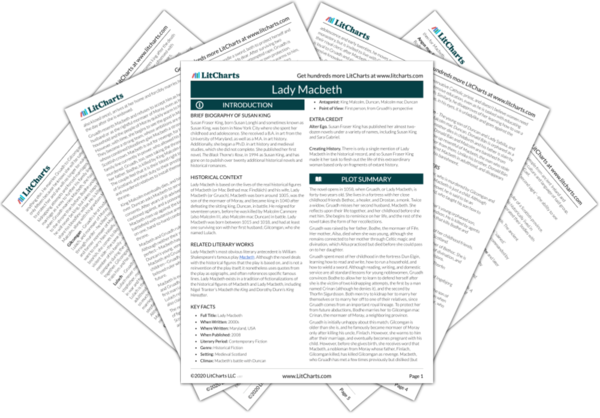Macbeth’s dreams of being king are, he claims, as much for Scotland’s sake as for his own. Still, he worries that, even though prophecies have declared he will be king, by actively taking the crown from Duncan he is going too far in grasping his own future. However, Gruadh, who has struggled with the morality of killing in the past, now understands that sometimes violence is necessary, and that Macbeth can choose to have a clean conscience.
